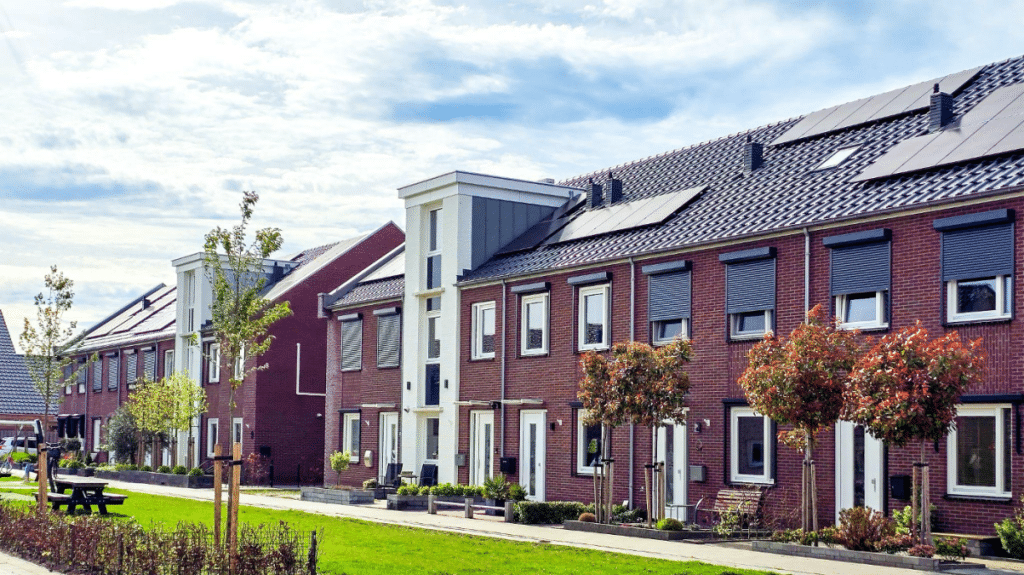As more houses switch to renewable energy sources, solar panels are becoming a more popular option for lowering energy expenses and limiting environmental effects. However, with so many alternatives on the market, choosing the perfect solar panels for your home can be challenging. My Green Electricity will help you seek to simplify the decision-making process by providing useful suggestions and insights to help you make an informed conclusion. From understanding your energy requirements and evaluating panel efficiency to budget and installation considerations, they can teach you all you need to know to invest in the ideal solar solution for your house. Visit them now.
The value of solar energy for homeowners
Using solar energy provides homeowners with a strategic advantage not only in lowering utility bills but also in increasing property value. By investing in solar panels, you can actively contribute to a sustainable future while potentially raising your home’s market value. Homebuyers are increasingly looking for houses with renewable energy options. Many locations provide incentives such as tax credits or rebates, which can greatly reduce the initial installation costs, making this environmentally beneficial option more accessible.
Determine your energy needs
To make an informed decision about solar panels, first examine your energy requirements. Begin by conducting a complete study of your monthly electricity consumption. Review previous utility bills to find patterns and swings in usage throughout the year; this information can help you calculate your average kilowatt-hour (kWh) consumption. Consider not only your existing behaviours but also possible changes—such as purchasing an electric vehicle or adding to your home—that could boost consumption.
Assess the precise energy requirements of important appliances and systems in your home. Understanding which technology uses the most electricity might help you develop more effective energy management techniques. For example, if air conditioning is used heavily during the summer, investing in solar systems that cater to peak demand may be wise. Think beyond the figures and explore how energy-efficient modifications could reduce your needs while increasing the efficiency of any future solar installation.
Don’t forget seasonal differences in sunshine exposure and weather conditions, which affect energy generation capacities all year. In some areas, energy usage may increase during the winter months, when heating is required, or during hot spells, when cooling systems work overtime. This comprehensive method ensures that you are not only accounting for current usage but also planning for future changes—an important consideration when choosing a system that precisely corresponds with both your lifestyle and long-term sustainability goals.
Understand the panel types available
Understanding the different types of solar panels can have a big impact on your energy efficiency and long-term savings. The three main categories—monocrystalline, polycrystalline, and thin-film—each provide distinct benefits adapted to individual requirements.
Monocrystalline panels are noted for their sleek design and great efficiency, making them an attractive option for individuals with limited rooftop space. On average, they convert about 20% of sunshine into electricity, resulting in more power in less space.
Polycrystalline panels, on the other hand, provide a cost-effective alternative without losing performance; while they are slightly less efficient, they are frequently preferred for bigger installations when economy is a consideration.
Thin-film solar panels are an intriguing breakthrough; while they typically have lower efficiency rates of up to 10%, their versatility enables integration in a wide range of applications, from rooftops to flexible surfaces such as carports or building facades. This variety allows homeowners to look beyond typical layouts and consider choices that better suit their aesthetics or spatial constraints.
Choosing the proper panel type is more than simply the initial cost or cosmetic appeal; it’s also about understanding how each option fits into your overall energy goals. Take the time to consider factors such as local climate conditions—more efficient models may be beneficial in areas with limited sunlight duration—or your long-term energy consumption plans to ensure you make an informed decision that not only meets your current needs but also aligns with your future goals.
Choose trusted professional installers
Choosing a reliable professional installation is just as important as selecting the correct solar panels for your home. A qualified installer is well-versed in both the technical aspects of solar energy systems and local legislation and incentives. This expertise can save you time and money by ensuring that your installation fulfils all compliance standards and maximises your potential electricity bill savings.
Engaging with installers that offer full consultations might reveal insights specific to your property’s unique features. Instead of a one-size-fits-all approach, they should consider your roof space, orientation, and shading factors when recommending an ideal panel installation. An installation worth considering will take the time to educate you on the various technologies available—such as monocrystalline versus polycrystalline panels—and their respective benefits based on your unique energy objectives. This way, you’re not just investing in equipment but also in experienced coaching, which will allow you to make informed selections along the way.
Choosing the most suitable solar panels for your home requires careful consideration of a number of aspects, including efficiency, durability, and warranty options. To achieve the best performance, you must first examine your energy needs and the available area on your site. Evaluating different products and getting expert guidance can help you make an informed purchase that is consistent with your budget and long-term goals. As you consider your options, keep in mind that investing in high-quality solar panels can result in significant long-term savings and environmental benefits. Take the first step toward a sustainable future by exploring your options and contacting local solar providers today!
